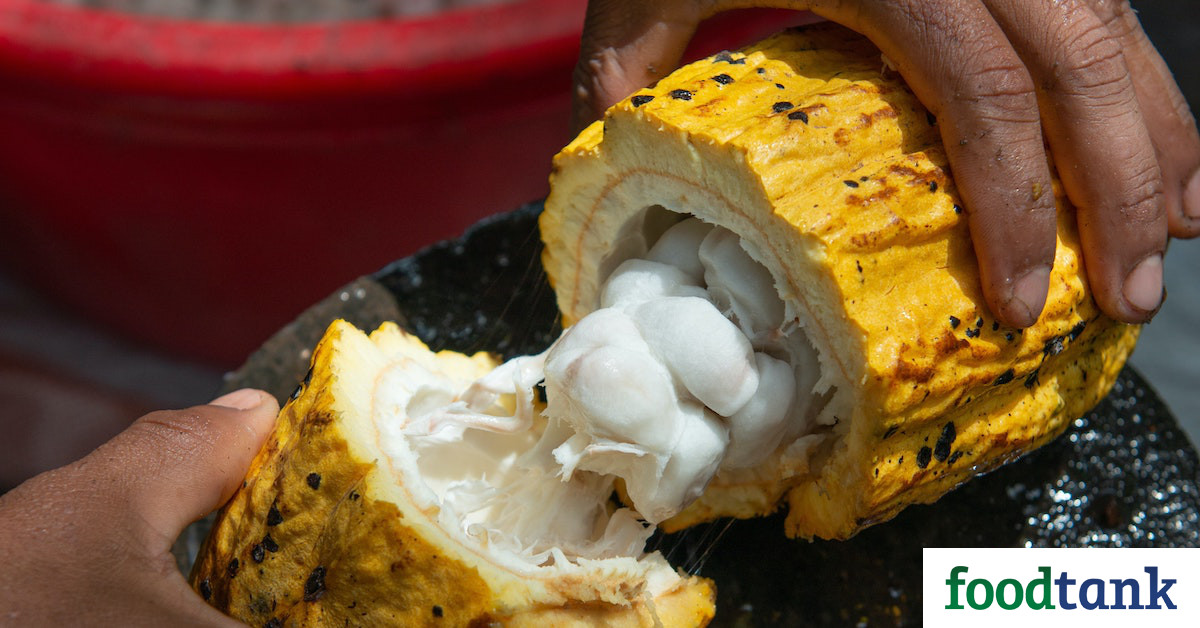Food Empowerment Project Employs Education to Help Consumers Make Ethical Food Choices – Food Tank

The Food Empowerment Project (FEP), a nonprofit food justice organization, is using education, community work, and advocacy to build a more equitable food system.
“One of the core values of FEP is to lessen the suffering of all beings and raise awareness about how our food choices can change the world,” Lauren Ornelas, founder of FEP, tells Food Tank.
The organization intends to accomplish this core value by promoting ethical veganism, a diet abstaining from products whose creation involve the exploitation of people and animals.
“We encourage others who have access to healthy food to go vegan,” says Ornelas. “We do so to lessen one form of exploitation and suffering.”
To help people adopt a vegan lifestyle, FEP uses education and outreach materials to explain how ethical veganism can benefit the health of people and the environment. The organization also created two sister websites that offer vegan Mexican and Filipinx recipes. Currently, FEP is developing a third website that will feature vegan Lao cuisine.
Acknowledging that a vegan lifestyle is not immediately accessible to everyone, the organization also helps residents in Black and Brown communities find healthy foods in nearby stores. FEP works with local community organizations to conduct focus groups and gather data that is used to brief policymakers and promote policy reform.
FEP also practices ethical veganism by mobilizing its resources to address a multitude of issues that food chain workers face. Some of this work focuses on empowering farm workers in the United States (U.S).
“As a vegan organization, we feel it is important for us to fight for the rights of those who pick our food,” says Ornelas.
According to the National Farm Worker Ministry (NFWM), many farm workers handle machinery, like tractors, that can lead to higher rates of injury but are often excluded from labor laws and worker protections. Farm workers on the West Coast also report that they are more likely to face hunger and homelessness due to the recent wildfires and pandemic.
To combat these issues, FEP is partnering with farm worker justice organizations to protect farm workers from wildfires and address language barriers that can cause Indigenous farm workers to experience harassment and discrimination. In response to COVID-19, the organization raised more than US$10,000 to send fresh produce to Indigenous farm workers and delivered 655 backpacks to children of Indigenous and non-Indigenous farm worker families.
“These workers are the people who feed us and who deserve to be treated with dignity and respect, but instead are victims of a racist and unjust system,” says Ornelas.
In addition to their efforts in the U.S., FEP is also working on an international level to address the suffering of people within the food system. In particular, the organization aims to tackle child labor in the chocolate industry in West Africa.
West African countries supply 70 percent of the world’s cocoa, according to the World Cocoa Foundation (WCF). Some companies rely on child labor in these regions to keep their wages low and prices competitive. And some children, abducted by traffickers from neighboring countries, work without pay while facing abuse and exposure to agricultural chemicals.
“I was horrified that slavery was still taking place today for chocolate,” says Ornelas. “When I founded FEP, I knew this had to be a focal point of our work.”
The organization compiled a Chocolate List, which informs viewers on the source of chocolate from chocolate companies. Ornelas tells Food Tank that the list, “has been successful in getting large corporations to be transparent [about cocoa sourcing].” FEP also works with companies to help them change their chocolate suppliers to those that do not rely on child labor.
“It is important for us to remind vegans that just because chocolate might be vegan does not mean it is cruelty-free if it came from child labor or enslaved people,” says Ornelas.
By empowering marginalized groups and educating people on issues in the global food system, FEP hopes their efforts can influence people’s food choices.
“Our food choices can change the world,” says Ornelas. “FEP encourages people to eat with their ethics and use their collective voices to help bring about positive change.”
Photo Courtesy of Rodrigo Flores, Unsplash
Join the Conversation:
Published at Sat, 16 Jan 2021 08:00:09 +0000






Comments
Loading…